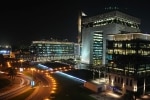Executive summary
In an era of growing political turmoil, the tourism sector is facing a significant test. Political stability and safety are prerequisites for tourism; even the mere threat of events such as civil unrest and terrorism can cause tourists to rethink their decision to visit a destination. Negative perceptions of a tourist destination can persist for years and affect a whole country. Although the road to recovery can be long and arduous, the scale of the economic benefits from tourism makes investing in travel and tourism worthwhile.
Countries can take a number of measures to revamp their tourism sectors after political unrest. Efforts to restore safety and security and reboot the tourism sector once the situation is normalized should be aimed at four key stakeholders: tourists, the media, tourism businesses, and the governments of tourists. The first measure, crisis management, demonstrates a country’s ability to minimize losses and ensure safety, through effective search and rescue efforts, safe shelter, and tightened security. Perception management limits negative publicity and communicates a strong message to address visitors’ concerns. Incentivizing tourism demand once the crisis has passed, encouraging domestic tourists, and inviting visits from new segments that are less susceptible to the impact of political unrest are measures to restore the number of visitors. Crisis-immune product offerings such as isolated resorts or heavily guarded enclaves decrease the riskiness of tourist destinations. Multistakeholder planning is a preemptive measure that includes a country’s tourism authority in disaster planning and management activities through appropriate local, regional, or national committees. Following these measures will prepare a country to weather a period of political instability and help maintain its appeal as a tourist destination.
Conclusion
When political unrest has negatively affected a country’s tourism industry, disrupting visits by both domestic and international travelers and stifling the economic benefits of the sector, governments can take steps to refurbish the sector’s image, during a protracted crisis and in the aftermath of a sudden violent event.
Better yet, countries that put in place a plan for crisis management and a national policy on tourism safety will be better equipped to handle unexpected episodes or periods of political instability in a proactive manner.












Menu